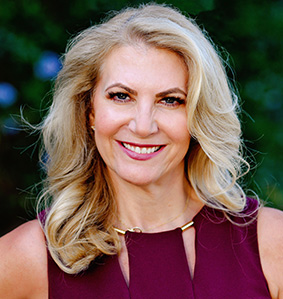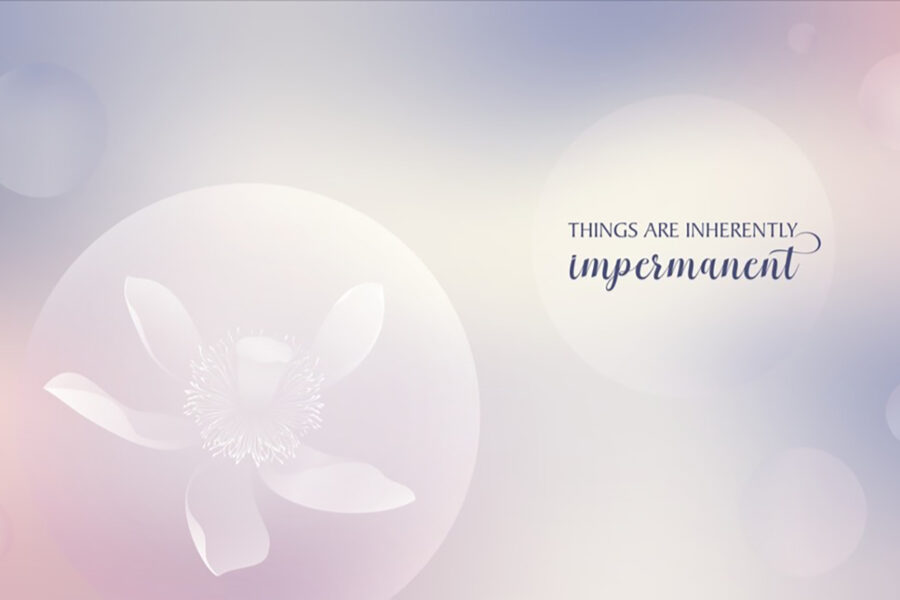The world is in flux, more than it has been in living memory. We find ourselves standing on shifting ground—technological revolutions, climate crises, political reshaping, and the deeply personal transitions that ripple through our lives. It’s easy to feel untethered, longing for something solid to hold on to. What if the answer isn’t in grasping for stability but in embracing impermanence?
Impermanence is the idea that nothing is permanent. It can feel unsettling at first. It confronts our desire for stability, predictability, and control. But when we lean into it, impermanence becomes our teacher, particularly during transitions.
Impermanence is a truth as old as time, yet we spend much of our lives resisting it. We cling to what feels safe: routines, roles, and relationships. When they change, as they inevitably do, we grieve the loss, sometimes not for what was, but for the illusion that it could last forever. But here’s the quiet beauty of impermanence: it holds the promise of renewal.
In life and work, transitions often come with resistance: the fear of losing what was or the discomfort of stepping into the unknown. Yet impermanence reminds us that just as challenges arise, they also pass. Teams adapt. Economies stabilize. Leaders evolve.
The key lies in cultivating adaptability. Embracing impermanence doesn’t mean ignoring the weight of change; it means learning to ride its waves. Leaders can set the tone by modeling resilience, fostering trust, and empowering teams to view transitions as opportunities rather than threats.
Impermanence isn’t just the reality of our world today; it’s a call to action. It invites us to remain curious, courageous, and hopeful as we navigate the transitions shaping our world. By leaning into change, we create space for growth, possibility, and progress—both individually and collectively.
In a time where so much feels uncertain, impermanence offers one certainty: this too, will pass. What we choose to do with it is entirely up to us.
Buddhist philosophy offers a profound lens through which to view this impermanence. At its core is the belief that clinging—to possessions, identities, or even ideas of permanence—creates suffering. The Buddha taught that all things are transient: every moment arises, exists, and eventually fades. By accepting this truth, we free ourselves from the anguish of trying to hold onto what cannot be held.
This isn’t a call to detach from life but to engage with it more fully. To live untethered doesn’t mean to live unmoored—it means to meet life as it is, with open hands and an open heart. It’s an invitation to stop grasping at what was or anxiously anticipating what will be and instead find peace in the present moment, however imperfect or fleeting it may be.
Melanie brings three decades of C-level expertise in Organizational Development and HR, enriched by a dynamic career spanning diverse industries and organizations.  Her mission is to ignite her clients’ leadership prowess and help them unleash their full potential. Her career has been a thrilling ride through the uncharted territories of complex organizations and the nuanced landscapes of corporate leadership. She’s worn the hats of both the entrepreneur and the executive, giving her a profound understanding of the challenges and triumphs in these worlds. She understands the urgency, agility, and innovation needed to thrive in this ecosystem.
Her mission is to ignite her clients’ leadership prowess and help them unleash their full potential. Her career has been a thrilling ride through the uncharted territories of complex organizations and the nuanced landscapes of corporate leadership. She’s worn the hats of both the entrepreneur and the executive, giving her a profound understanding of the challenges and triumphs in these worlds. She understands the urgency, agility, and innovation needed to thrive in this ecosystem.
She has coached in organizations from startups to Fortune 50 such as Microsoft, ServiceNow, Johnson & Johnson, Varicent, Amdocs, Cyberark, Accenture, Brainly, Amdocs, Checkpoint, Centrical, Cedar, and Tealium.


